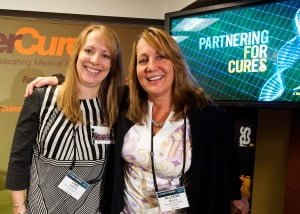Why should you join GRIN?
It’s pretty simple. Without you, researchers won’t have the essential patient information to develop the drugs, gene therapy, and clinical trials for Charcot-Marie-Tooth and other Inherited Neuropathies.
HNF’s Global Registry for Inherited Neuropathies (GRIN) is one of our initiatives that supports our commitment and dedication to developing treatments and discovering cures for CMT and other INs.
The registry collects the historical, clinical, and genetic information on patients diagnosed with CMT and the various forms of INs to help advance therapy development for these debilitating disorders.
How does your participation in GRIN help researchers?
Here are top ten ways your participation in GRIN helps accelerate research and bring us closer to finding a cure for these diseases:
1. Your detailed clinical and genetic information will help researchers develop drugs, gene therapy, and clinical trials.
2. Scientists can learn which genetic modifiers might mitigate the disease using your patient information.
3. As our registry grows, we gain exponentially wider visibility for researchers into the CMT community and allow more precise targeting of specific conditions.
4. Researchers can study why individuals have different symptoms.
5. Scientists can learn about phenotype/genotype relationships, and how a particular mutation type can lead to different or unique symptoms.
6. Participation in the registry helps researchers learn how future treatments work or don’t work for a given patient population.
7. Scientists can use tissue samples from registrants who consented to be contacted for such purpose.
8. Researchers can collaborate with medical professionals to improve how they address the various symptoms for CMT/IN patients.
9. Researchers can collaborate locally and globally to speed up research processes.
10. As a registrant, you will be informed when you may be eligible for clinical research studies (clinical trials).
Ready to join?
Anyone diagnosed with Charcot-Marie-Tooth or a related inherited neuropathy can join our registry. Your information is always kept confidential: only approved PI’s and registry personnel can see your information.
If you are interested in joining our registry, there is no better time than right now. Come join GRIN and be on the front lines to help find the treatments and cures for all inherited neuropathies.






0 Comments